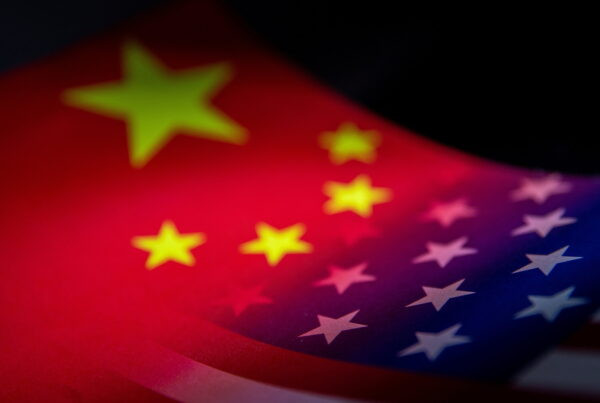
A new door has opened for the right wing in Latin America. Conservative policies and leadership are back on the region’s radar as leftist regimes in the region have begun to lose their luster.
Arriving on the heels of Paraguay’s conservative election win, Chile’s right-wing parties secured the majority of seats to draft the nation’s new constitution.
It created what some Chileans called an “earthquake” in the country’s politics and delivered another blow to the struggling administration of leftist President Gabriel Boric.
Meanwhile, Argentina’s conservative politician Javier Milei is creating a stir and is the front-runner candidate in the October 22 presidential election.


In Central America, Carlos Pineda is at the top of the polls in Guatemala as the nation’s June 25 presidential election closes in.
Considered to be a political dark horse, Pineda’s business background and conservative, pro-capitalist policies have earned him a huge following.
These seismic political shifts are occurring amidst the soaring popularity of conservative authors and political commentators like Agustin Laje.
Some regional analysts say Latin America may be, quite literally, turning down the “right” political road again.
A broader shift toward center-right policies will also impact the United States and China, which are currently locked in a struggle to dominate trade and influence in the region.
“Historically, there’s a natural alignment between center-right governments and the United States,” Dr. Evan Ellis, professor of Latin American studies at the U.S. Army War College Strategic Studies Institute, told The Epoch Times.
Ellis noted there’s definitely a “buyer’s remorse” sentiment in regional nations with strong democratic institutions. Not coincidentally, it’s also where most of the conservative pushback against the “new left” is happening.
According to Ellis, escalating discontent with socialist governments stems from an inability to solve the complex social and economic problems that are deeply rooted in many Latin American countries.
In Paraguay’s April election, Ellis said the right-wing win wasn’t because people necessarily wanted Santiago Pena in office. “It’s just that [Efrain] Alegre wasn’t different enough.”
Historically Latin America has flipped between right and left political leadership like pages in a book. It’s what analysts have called the “pendulum effect,” and that’s part of the problem.
Old-school politicians in the region continue relying on this phenomenon, biding their time until public favor swings back in their direction.
It’s also a good metric to measure how relations with the United States or China will progress when administrations change.
When the pendulum swings hard left, China becomes the favored partner for investment and trade. In the opposite direction, the United States gains the advantage.
But Joseph Humire, executive director of the Washington think tank Center for a Secure Free Society, says the flip-book view of Latin America’s politics ignores a critical element.
“It discounts there are real people who move the pendulum forward,” Humire told The Epoch Times.
He noted the conservative shift this year—particularly in Argentina and Guatemala—is toward candidates that aren’t your typical right-wing leaders.
Milei, a self-described conservative-libertarian, promised to “dollarize” the economy by eliminating the devalued Argentine peso in favor of the U.S. dollar.
He also plans to close the nation’s central bank in a two-part bid to end inflation.


It’s the same move Ecuador pulled in 2000, which boosted the country’s economy tremendously.
In Guatemala, Pineda is a plantation owner who Humire said just “came out of nowhere” with a center-right conservative approach to winning over the public.
It demonstrates a departure from the traditional “pendulum,” which allowed parties on both sides to forego deliverables in favor of maintaining a status quo.
Ellis echoed this sentiment, “I think there’s a movement to try other non-traditional solutions.”
But there are some hard lessons the new right-wing movement must heed, according to Humire.
Humire’s ancestral roots are in Bolivia, a country that’s all too familiar with failed socialist utopias.
Though right-wing presidents in recent years have made missteps that sparked renewed interest in what has been dubbed the “new pink tide.”
At the top of these priorities is better navigation of the United States–China dynamic. Because trying to be “friends’ with both nations amidst a trade war resembles the old adage of trying to take two dates to the prom.
Humire and Ellis both pointed to the former right-wing president Mauricio Macri in Argentina who, like many of the old guard, lacked “geopolitical vision” and failed to balance relations with the United States and China.
“The last time the right came in, they ignored the world and thought they could continue doing business the way they used to, by being friends with everybody,” he said, then added, “If Milei comes to power and decides to keep China as their top trade partner, it’ll be his undoing.”
Another pitfall the new conservative movement should avoid is changing too much. Humire said that’s why the left’s original constitutional changes in Chile were widely rejected.


Even Chileans who voted for Boric rejected the new constitution. That’s because the changes the leftist administration proposed were too sweeping.
“They threw the baby out with the bathwater on that one,” Humire said.
“The way [Evo] Morales, [Hugo] Chavez, and others rewrote their constitutions was in a sneaky way. In Chile, they just tried to force it down people’s throats.”
And now that the right-wing has the majority control over the new constitutional draft, he said it’s paramount they don’t make the same mistake.
“I think the right-wing political operatives in Latin America are learning that populism alone is not sufficient to succeed in governance, even if it is sufficient to get elected,” Irina Tsukerman, geopolitical analyst and founder of Scarab Rising, told The Epoch Times.
Tsukerman observed, after the “obvious failures” of leftist economic policies, that a more “thoughtful, and problem-solving oriented approach” needs to be part of the long-term regional strategy.
“Not just when a right-wing administration happens to be in place,” she said.

![[GOOD PRESS] ON[GOOD PRESS] ON](https://georgemagazine.com/wp-content/uploads/2024/08/16389056566437433941_2048-300x300.jpeg)


Discount Applied Successfully!
Your savings have been added to the cart.